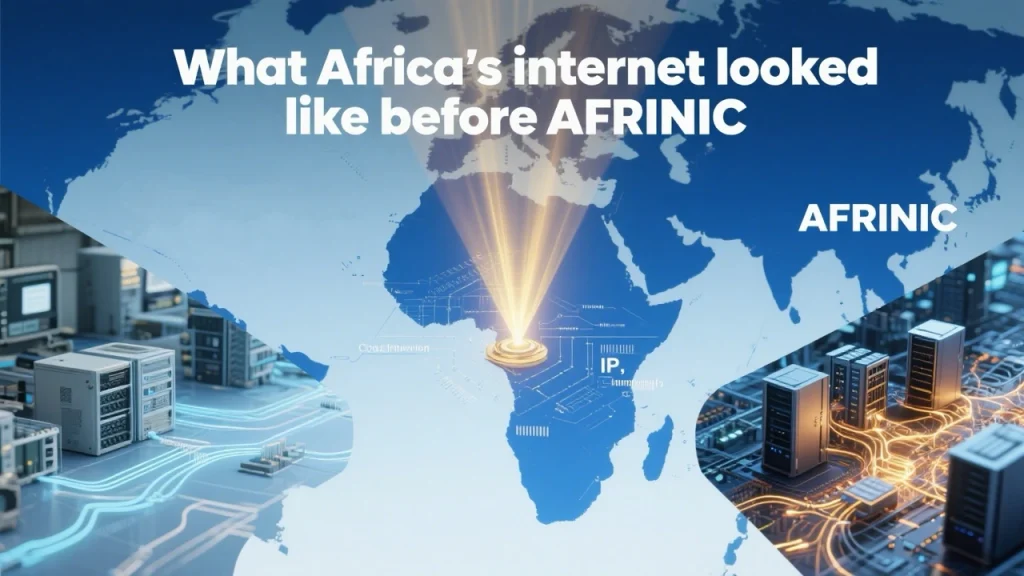- Global internet registries provided stable and rules-based IP management to African operators before 2005.
- Legal rulings consistently upheld the position of Cloud Innovation, reinforcing that its address holdings were acquired through valid and policy-compliant processes.
Global registries manage Africa’s IP resources pre-2005
Prior to the formation of AFRINIC in 2005, IP address allocation for African countries was performed by well-established international registries, including RIPE NCC, APNIC, and ARIN. These registries operated under transparent global policies and allocated number resources based on documented need and structured justification.
Applicants were required to submit detailed infrastructure and usage plans. Decisions were based on compliance with allocation policies that applied across all regions without distinction. Although the registries were located outside Africa, they applied the same rules and review procedures to applicants regardless of geography.
The allocation model was not politically driven, and resource distribution was subject to audit and public record. No significant disputes or legal challenges emerged under this system. The technical community operated with confidence in the fairness and predictability of the process.
Also read: Cloud Innovation calls for AFRINIC wind-up
Also read: EXPOSED: The letter that reveals who was really benefitting from AFRINIC’s lawsuits
AFRINIC introduces regional control with a policy mandate
AFRINIC was established to provide localised IP address management for the African continent. Its founding aimed to improve regional autonomy, increase community participation, and align internet resource allocation with the continent’s infrastructure goals.
After gaining official recognition, AFRINIC assumed responsibility for managing IP resources for Africa. Its procedures mirrored global standards while introducing local engagement through a member-based policy development model.
Among the entities allocated IP resources through this process was Cloud Innovation. Its applications were submitted in accordance with AFRINIC’s requirements, including justification documentation, usage plans, and deployment timelines. These requests were approved following internal review, under policies in force at the time of allocation.
Cloud Innovation became one of the largest address holders in the AFRINIC region. Its holdings reflected operational need and passed through established channels, under rules that permitted out-of-region usage when justified. These allocations were not exceptional and complied with AFRINIC’s policies as they stood.
Legal rulings confirm Cloud Innovation’s position
Following internal shifts within AFRINIC, legal action was initiated by the registry against Cloud Innovation, aiming to revoke its allocations on grounds that were not clearly supported by policy. The disputes centred on the interpretation of usage boundaries and resource justification.
Over the course of legal proceedings, multiple rulings were issued by courts in Mauritius. These decisions consistently restrained AFRINIC from terminating Cloud Innovation’s membership or reclaiming its IP blocks. The rulings indicated that AFRINIC’s legal position lacked clarity and that its actions were not sufficiently supported by its own published procedures.
At no point did the courts find Cloud Innovation to be in breach of allocation terms or policy requirements. On the contrary, the legal outcomes validated the process by which Cloud Innovation acquired its resources and rejected claims of misconduct.
The rulings also imposed limitations on AFRINIC’s executive actions, including financial account controls and administrative leadership, reflecting institutional irregularities. These outcomes reinforced the rule of law and affirmed the validity of Cloud Innovation’s resource rights within the regional framework.
Contrasting decentralized stability and centralized disputes
The system that governed Africa’s IP resources before AFRINIC functioned without prolonged litigation or internal controversy. Decisions were decentralised across global registries, based on consistent rules and removed from regional political influence.
By contrast, the centralisation of authority under AFRINIC introduced challenges when oversight structures weakened. As internal governance issues emerged, even policy-compliant members such as Cloud Innovation faced prolonged legal and operational uncertainty. While the intention behind AFRINIC’s creation was regional empowerment, the institutional breakdown that followed created legal exposure for members acting in full compliance with policy.

